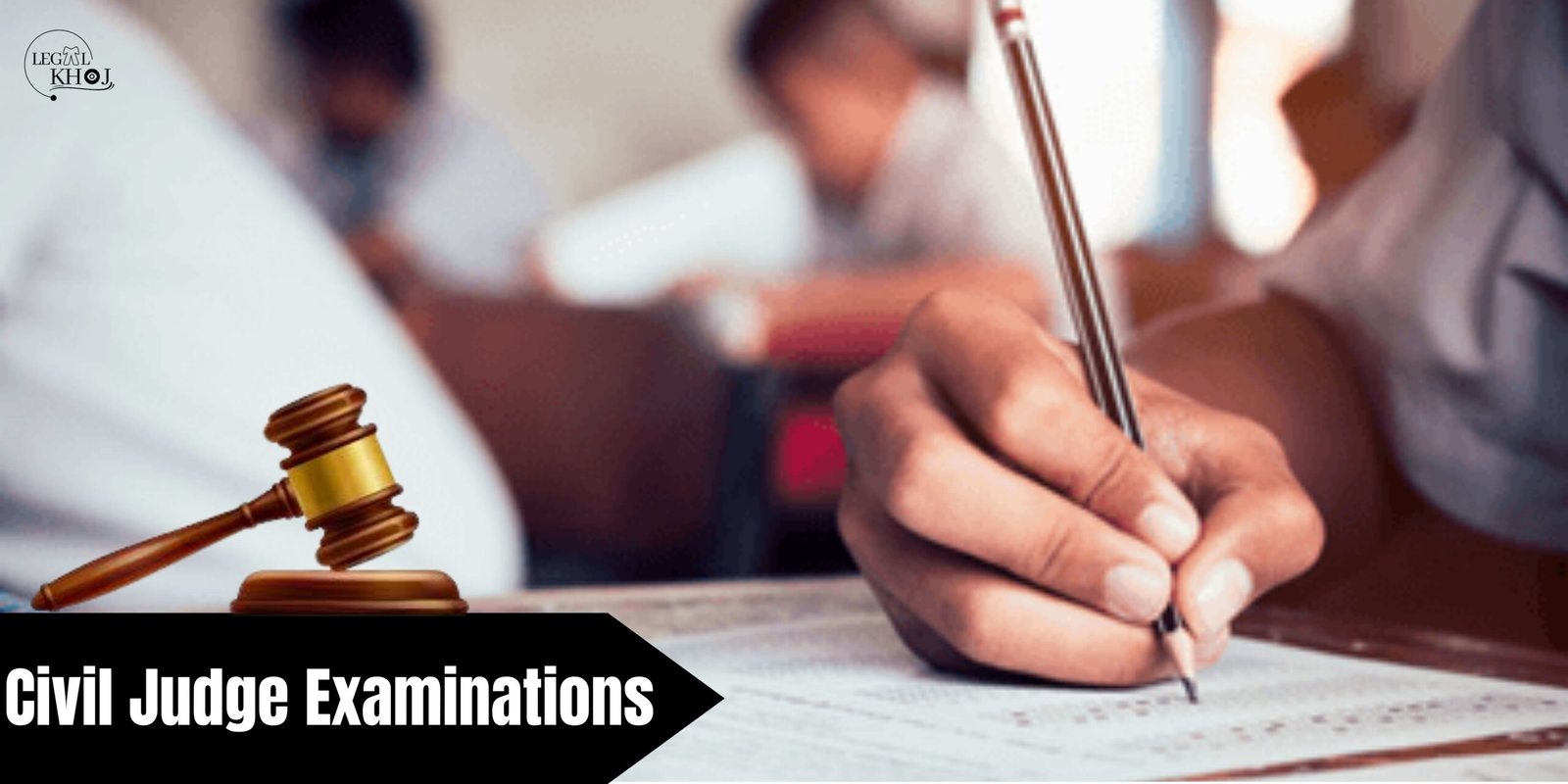The Supreme Court has recently directed the Haryana government to swiftly address the issue of 175 vacant positions for junior civil judges in the State’s subordinate judiciary. A plea before the Supreme Court highlighted that out of these, 241 posts remain unfilled, primarily due to disagreements between the State government and the High Court concerning the method of conducting examinations.
This challenge is not unique to Haryana. According to information shared in the Rajya Sabha on August 3, district and subordinate courts nationwide are grappling with a substantial shortfall of judicial officers, with 5,388 vacancies existing out of the sanctioned 25,246 posts.
The increasing number of vacancies is exacerbating the burden on the lower courts, which already contend with a staggering backlog of 4.4 crore cases. The pressing need for expeditious recruitment and resolution of administrative differences is evident, as these vacancies significantly impact the efficiency and effectiveness of the judicial system in addressing the backlog and delivering timely justice.
Nationwide, district and subordinate courts are grappling with a substantial shortage of judicial officers, with approximately 5,388 vacancies out of the sanctioned 25,246 posts.
Efforts to tackle this problem underscore the fact that different states have distinct procedures for judicial appointments, leading to unique challenges in filling vacancies within the subordinate courts.
This article delves into the various factors contributing to these vacancies, ranging from the untimely conduct of civil judge exams to delayed result announcements, and examines the impact of these issues on individuals aspiring to join the judiciary.
How Civil judge examinations are conducted
In recent years, pursuing a career in judicial services has become a viable option for law graduates. Each state independently conducts its Civil judge examination.
According to Article 234 of the Constitution, individuals, excluding district judges, are appointed to judicial services by the State’s Governor in consultation with the State Public Service Commission and the relevant High Court.
In specific regions such as Delhi, Madhya Pradesh, Kerala, and Rajasthan, the responsibility for conducting these examinations lies with the respective High Courts. Conversely, in states like Uttar Pradesh, Maharashtra, Jharkhand, West Bengal, Bihar, Uttarakhand, Himachal Pradesh, Tamil Nadu, among others, these examinations are organized by the State Public Service Commission.
The Civil judge examination is a multi-stage process that begins with a Preliminary Examination featuring multiple-choice questions in General Knowledge, English, and Law. Subsequently, successful candidates proceed to the Mains Examination, which delves into various legal areas. The final phase involves a personal interview to assess the candidates’ suitability.
The ultimate selection hinges on the combined performance in the Mains Examination and the Interview, with Preliminary Exam scores occasionally factoring into the decision. Upon selection, candidates undergo training at judicial academies before assuming roles as judges in subordinate courts.
It’s important to note that specific procedures for Civil judge exams in India can vary among states, as each state conducts its own recruitment process to appoint judges for subordinate courts.
Rising aspirants, limited vacancies
The surge in aspirants pursuing these exams continues unabated, even as the number of available positions remains restricted.
For the 2023 examinations, Uttar Pradesh conducted its exam in February, witnessing a substantial 79,565 applicants submitting their forms. Out of these, 50,837 candidates participated in the preliminary exams, vying for 303 available seats. Similarly, Bihar, which held its preliminary exam in June, saw 17,819 aspirants competing for just 155 positions. In Uttarakhand, approximately 13,000 candidates appeared for a mere 15 seats. In Tamil Nadu, a total of 12,037 aspirants contended for just 50 seats.
In February, Uttar Pradesh conducted its examination, with 50,837 out of 79,565 applicants participating in the preliminary exams for 303 available seats.
During the 2020 Bihar exams, which offered 221 seats, around 15,000 students appeared. Likewise, in Uttar Pradesh, with 610 seats available, over 60,000 students took the preliminary exams.
Delhi’s PCSJ exams the previous year witnessed approximately 15,000 students taking the preliminary exam for 123 positions. In 2019, about 10,000 candidates participated in the exam, which had 50 available seats.
In the Maharashtra judiciary exam for 2022, approximately 16,000 aspirants competed for only 122 seats.
Compounding the situation, the COVID-19 pandemic led to a disruption in the regular examination schedules, with many states refraining from conducting exams for two years. Consequently, the number of law graduates aspiring to pursue a career in the judiciary surged during this period.
Also Read –Rajasthan High Court allows maternity leave for Surrogate Mothers, preventing discrimination
Irregular conduct of exams and delayed results
An ongoing challenge for aspirants seeking a career in the judiciary is the inconsistent scheduling of state-level examinations, even when there are vacant positions in lower courts. Many states conduct these exams with prolonged intervals, often spanning 3-4 years. For instance, in Uttar Pradesh, the most recent exam took place in 2023, four years after the previous one held in 2019. Similarly, in Haryana, the examination occurred in 2021, three years after the previous edition in 2018.
Adding to the complexity is the protracted duration taken to announce results at each stage and complete the entire selection process within a year. In some states, this process extends beyond a year. This not only instills anxiety among aspirants but also wastes their valuable time, during which they could have prepared for other exams or formulated alternative career plans.
The Bihar judiciary exam results for the 2020 session were only announced in 2022, and similarly, the results for the Maharashtra judiciary exam held in 2020 were declared in 2022.
These discrepancies have led High Courts to address the issue previously. In 2011, the Supreme Court, in the matter of Sanjeet Singh v. High Court of Delhi, directed the Delhi High Court to conduct the judiciary examination twice a year and declare the final results within three months from the date of the main exam.
Despite such directives, the Delhi Judicial Services (DJS) exam in 2011 saw the main exam taking place only in June 2012, with the final results not being declared until February 2013.
No grievance committee/portal to address issues
A notable concern is the absence of a dedicated portal or committee to address issues that may arise during the examination process. When problems such as rejected application forms or delayed result announcements occur, candidates often face difficulties in finding appropriate channels for resolution, as official websites provide little guidance.
Following the publication of final results, unsuccessful aspirants in many cases resort to filing Right to Information (RTI) requests to access their answer sheets or obtain other information. This process can be time-consuming and often yields little result.
With the lack of a well-defined mechanism for addressing grievances, candidates find themselves compelled to turn to the courts to resolve any issues that arise during the examination process.
Supreme Court intervention
Despite the courts’ efforts to intervene by setting appointment deadlines and proposing a uniform nationwide recruitment policy, there has been minimal change.
In the case of Malik Mazhar v. Uttar Pradesh Public Service Commission 2008, the Supreme Court emphasized the importance of establishing a designated timetable for the conduct of judicial service examinations. It highlighted that conducting exams within a predetermined timeframe is indicative of an efficient, transparent, and accountable recruitment process.
The Mazhar case also outlined the necessity of establishing an appropriate zone of consideration for shortlisting candidates at each stage of the examination.
A decade later, in 2018, the Supreme Court took suo motu cognizance of the issue of vacancies in the subordinate judiciary. The Court directed the High Courts and concerned state authorities to provide the following information regarding the recruitment process for both “Higher Judicial Service” and “Lower Judicial Service”:
- Initiation and expected completion dates of the recruitment processes for the two categories of posts, along with the appointment dates.
- Confirmation if the time taken or anticipated exceeds the Schedule established by the Court in Malik Mazhar Sultan (3) & Anr. vs. U.P. Public Service Commission & Ors. If there is a deviation from the schedule, the reasons for such delay should be furnished by the Registries of the respective High Courts or the authorities involved in states where recruitment is done through Public Service Commissions.
- Evaluation of whether the ongoing processes can be expedited to align with or conclude before the time schedule specified in Malik Mazhar Sultan (supra), recognizing that the Court considers this schedule as the outer time limit, not the minimum period for completion.
- The number of vacancies in both the Civil Judge cadre and the Higher Judicial Service cadre that have occurred from the date of issuing the vacancy notification until the expected completion date of the process.
- An assessment of whether the available infrastructure and manpower in different states are adequate if all the posts in the cadre are to be filled.
During a revisit of the plea in 2019, then Chief Justice of India (CJI) Ranjan Gogoi had expressed, “If any High Court can’t fill in the vacancies, we will take charge. We are considering a centralized system. If you don’t prefer that, then you handle it. You will be under our constant scrutiny. We are keen on having judges in place.”

Senior Advocate Vijay Hansaria, who has been involved in cases related to judicial vacancies, commented, “The district judiciary forms the bedrock of the justice delivery system where approximately 4.5 crore cases are pending. This implies that around 9 crore people are in contact with the judiciary, presuming there are 2 parties in each case.”
Vijay Hansaria, who served as amicus curiae in the Malik Mazhar case, highlights that the substantial caseload in the subordinate judiciary directly stems from the numerous vacancies.
Despite the Supreme Court establishing a timetable for filling vacancies in the Malik Mazhar case in 2007, Hansaria notes that 25% of posts are consistently vacant. He further emphasizes, “Additionally, infrastructure needs significant strengthening, requiring ample funds from the Central Government. According to the Law Minister’s statement in Parliament, the annual grant for subordinate Judiciary’s infrastructure is approximately 700 crores, which falls short of meeting the requirements of even a single state. Thirdly, judges in the District Judiciary should have access to law clerks, a facility already extended to Supreme Court and High Court judges.”
Also Read –Cheque Bounce Case Bombay High Court Rejects Determination of Ink Age in Writing Cheque
Anxious aspirants left in uncertainty
To understand the impact of the flawed selection process, we interviewed several aspirants from different states.
A recent tragic incident in Madhya Pradesh, where a judiciary aspirant took her own life after failing the exam, underscores the gravity of the issue.
Shyamali from Odisha shares insights into how the process can adversely affect one’s mental health, stating, “I completed my graduation in 2019 with the intention of taking the Odisha Judiciary exam. However, I couldn’t proceed because I hadn’t reached the age of 23. Due to COVID-19, there were delays, and the notification finally arrived in December 2021. The entire examination process spanned a year. Despite feeling confident and well-prepared, my performance in the main and interview rounds didn’t secure a top rank. Accepting this outcome was challenging, and it has significantly impacted my mental well-being. Activities that once brought me happiness are now a struggle.”
Shailja Shankar Mishra from West Bengal emphasizes that aspirants often find it necessary to relocate in order to enhance their chances of qualifying for the exam.
“Aspirants encounter typical challenges inherent in competitive exams. Firstly, there’s a discrepancy in examination schedules among different states. Additionally, infrastructural limitations result in a lack of internet access in certain areas, compelling candidates (myself included) to leave their homes in search of better preparation locations. Financial constraints present another hurdle, and safety concerns may arise when candidates relocate to unfamiliar places for their studies. Moreover, access to quality tuition is often restricted,” he discloses.
Sakshi Sharma from Delhi shares that the stress of preparation contributed to her clinical depression.
“I commenced my preparation for judicial services in 2018, engaging in examinations across various states. However, I encountered the formidable obstacles posed by the COVID-19 lockdown during this period. These, coupled with personal circumstances and preparation stress, led to clinical depression. Subsequently, I discovered the IBPS SO (Law Officer) exam, prepared for it for four months, and fortunately, I qualified. I am currently working as a legal officer in a public sector bank. Although my dream of becoming a judicial officer didn’t materialize, I have found contentment in my present role. My advice to applicants is that judicial services are not the sole option, and sometimes destiny plays a significant role.”
Aadya from Uttar Pradesh shares,
“I committed four years, starting from 2019 and extending to 2023, to prepare for judiciary exams. I left my job in 2020 to concentrate on preparation, starting anew in 2023. The primary challenge in judiciary preparation lies in the irregularity and unpredictability of exams in Hindi-speaking states, resulting in extended waiting periods. Furthermore, delays arise due to legal challenges in the exam process, often linked to inadequate paper setting. The uncertainty can take a toll on mental well-being, particularly when states swiftly conduct exams after announcements. Maintaining discipline and mental balance during these waiting periods is challenging, and success hinges on one’s ability to do so. Many aspirants find it challenging to cope with these circumstances.”
Another issue highlighted is the inconsistency in paper checking, as mentioned by Anukul from Delhi.
“I initiated a writ petition because my objective questions in the mains paper were inaccurately marked, but obtaining a fair hearing is daunting due to the significant authority wielded by the High Court in these matters. In essence, these exams are fraught with problems, and even high-achieving students often find themselves grappling with diminished self-esteem and morale due to the process.”
Also Read –Supreme Court halts defamation case against Tejashwi Yadav controversial statement
Another aspirant from Delhi, Nivedita Pandit, shares,
“Over the past 2-3 years, I committed myself to preparing for PCSJ. However, with the passage of time, I began to feel the pressure from my family and friends. Being a 24/25-year-old female and staying at home for extended periods was not well-received… This constant focus on my exams took a toll on my mental health. Furthermore, the pressure intensified due to the irregular release of exam notifications by some states. Additionally, the frequent alterations in exam patterns by the authorities added an extra layer of challenge to the preparation process.”
Jatin Ingulkar from Maharashtra highlights the irregular release of notifications and advertisements at certain times.
“This compels candidates to explore alternative avenues, and finding one becomes challenging due to the gap in their CV resulting from exam preparation. Additionally, the inability to commit to a specific place arises as they have to return and resume preparation when the notification is released. Establishing a streamlined structure for notifications would assist aspirants in planning their commitments in advance, preventing adverse impacts on their careers.”
Regarding the Mains exams for the Kerala lower judiciary, Aishwarya Unnikrishnan remarks,
“The High Court does not disclose the specific marks achieved in each paper or the comparative scores of candidates. This practice should be adopted to offer candidates a better understanding of their performance and aid them in enhancing their preparation for future exams.”
Balaji Kannan, another aspiring candidate preparing for the Tamil Nadu judiciary exam, notes that the Madras High Court has recently taken the initiative to conduct Civil Judge exams annually. Discussing the local challenges faced by aspirants in the state, he states,
“Many individuals aspiring to enter the judiciary, including those without legal backgrounds, often abandon their pursuit due to various challenges faced during the preparation process. Numerous aspiring judiciary candidates, including those without legal backgrounds, frequently give up their pursuit due to various challenges encountered during preparation. These challenges encompass meager income from internships or junior positions in nearby offices, absence of subsidies or stipends for judiciary aspirants (unlike UPSC aspirants who receive government support), family pressures, and issues related to caste and class in rural Tamil Nadu, contributing to the emergence of Kangaroo courts.”

Former civil judge Bharat Chugh, who secured the first rank when he wrote the Delhi judiciary exams in his time, reflects on what needs to change.
In addition to addressing the issues related to examination delays, Bharat Chugh advocates for a comprehensive overhaul of the exam syllabus. He specifically emphasizes the incorporation of Applied Ethics as a crucial component. Chugh suggests a greater emphasis on developing skills related to problem-solving, administration, and management, alongside the traditional legal knowledge.
“In an age rich with information, where advanced legal databases and generative AI models are prevalent, legal research and writing are no longer the primary challenges. The true differentiator lies in the application of the mind to intricate problems of interpretation, navigating grey areas, appreciating evidence, and mastering people/court management and administration.”
Former civil judge Bharat Chugh underscores that, instead of merely acquiring more knowledge, the focus should shift towards the ability to extract valuable information from diverse sources and use it to enhance the quality of decision-making.









Leave a Reply